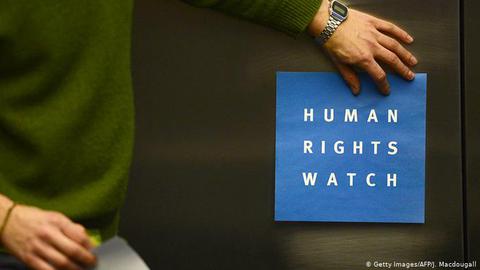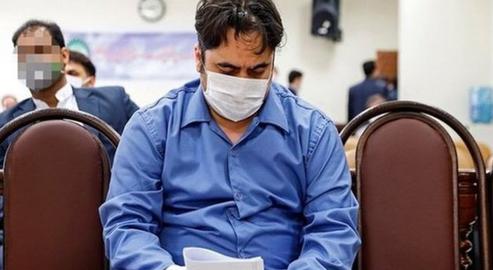This article was written by a citizen journalist based in Isfahan using the pseudonym Setareh Soltani
In recent months, there has been an increase in news coverage of cases of domestic violence in Iran, including violence that has ended in the deaths of women and girls. Campaigning groups say there has been a rise in incidents of domestic violence as the coronavirus pandemic has taken hold, in Iran and around the world.
But away from the headlines, many of these cases remain unreported and hidden. In this report, IranWire looks at the stories of Iranian women who experience domestic violence, including psychological, verbal, sexual and economic violence.
***
At the end of the month, she goes to the accounting clerk and asks, embarrassed, "I'm sorry. Can I ask how much I have received?"
Narges is a nurse and has worked in a government hospital for many years. "My bank account, into which my salary is paid, is with my husband," she says. "I do not know how much I get paid. He gives me a small amount for expenses every month and ...” She stops, takes a deep breath and says: "I do not dare to ask how much I got paid. When I protest, he says, 'do you want me to prevent you from going to work and feel sorry that you will not get your retirement?"
Narges is 42 years old and has been working since she was 22. "I had been going to work for six months when we got married.”
He was kind in the beginning, saying we should put our money together. That's why I contributed my salary and offered it to him. He used to be kind and grateful, but it became a duty after a few months."
I spoke to a psychologist base in Tehran about Narges' situation. "The violence imposed on Narges and others like her is referred to as economic violence: men who do not allow women to experience financial independence. They are being abused financially, and they are always in trouble." The psychologist explained that domestic violence takes on a whole range of dimensions, and many of them are not even familiar to large parts of Iranian society. "Many women based in the home are exposed to all kinds of verbal violence, sexual violence and economic violence, and worse, they do not even know they are being abused."
After 20 years, Masoumeh has began to understand what she has been going through is domestic violence. She is silent for a moment and then says, ”He does not hit me, but he makes fun of me in front of everyone. He makes fun of everything I do and makes it a big deal. How can I explain it? He insults me and humiliates me. Everyone looks at it as if it is a joke, but he has treated me in such a way that others think of me as a clumsy, weak, and stupid person."
She says it’s not just her who knows she has changed. Her family has seen it too and say she is a different person than she was 20 years ago. "I was a happy and energetic girl; one of those girls who put the world on my shoulder and, as the saying goes, moved mountains. Everyone said “Masoumeh is running the show’, but now I feel I can’t do anything. I do not believe in myself at all."
A few months ago, after twenty years of living with her husband, she felt the need to talk to someone and that they should both go to a counsellor as a couple. It was only afterward that she realized she had been subjected to domestic violence for years. "He made me anti-social; I mean, when we get ready to go to a party, I get stressed about what he's going to say about me." She explains that the counsellor told him that purposely causing another person stress was a form of psychological violence.
Today, Masoumeh is learning more about types of violence and how to deal with them. ”I'm talking to a counselor. I read books. I'm listening to a podcast and studying self-awareness so I can regain my lost self-confidence."
I spoke to another woman, Suraya, who says her ex-husband had repeatedly forced her to have sex. "I really suffered for two whole years and endured all kinds of sexual violence. My husband watched porn and then wanted to try everything he saw on me, from tying me to the bed and flogging during sex, to pouring melted candles on my body. I did it for two years," she said, adding that this was done without her consent and while it was clear she was suffering. "My family was traditional and had no understanding of sexual violence at all. They said the wife should be obedient in bed, and they thought it was my problem." She had to try very hard to get a divorce.
A psychologist living in Natanz says that most of his clients have been sexually abused at one point in their lives. "Unfortunately, most people who come to me are not satisfied with the sexual aspect of their marital relationship. Many of them are forced to accept a violent relationship where sex is forced on them, and do not even know that this is a form of violence against them. They have accepted that as women, they must meet the sexual needs of their husbands at all times and in all circumstances."
According to the psychologist, women from traditional and religious backgrounds have experienced more sexual violence than others. She says when she asks this group of clients if they were satisfied with their sex lives, they were not used to thinking about it in terms of their own satisfaction. “They looked at sex more as a duty. They talk about the issue of obedience in Islam and refer to various narratives and hadiths, such as that a woman should meet the needs of her husband ‘even while on the hump of a camel’ — in any circumstance.”
According to her, the Islamic Republic’s patriarchal system and culture fosters the idea that a woman should obey when it comes to sexual matters, and do whatever she was asked to do. "When one cleric comes on TV, he teaches women to wear short skirts and try to be sexy for their husbands so that they will have intercourse with them; another advises bringing water and a bowl to wash their husbands' feet with salt and rosewater and so on. What else can be expected?"
The psychologist explained that violence of all kinds against women is not limited to a particular segment of society: "One of my clients was a doctor who was physically and verbally abused by her husband. She was even banned from practicing medicine, and although she had studied for seven years, she was not allowed to work or study. Because her husband was from the affluent strata of society, he calmed her down every time with money and jewelry."
Another psychologist living in Isfahan confirmed his colleague’s remarks. "Unfortunately and sadly, I have to say that in our country, sexual problems and gender discrimination are not limited to a certain group at all. Academic education has not been very effective in eliminating this disorder for different sections of society, and at universities," he says. "There are problems in educational centers too. In the upbringing of children, especially for boys, family and parental behavior play a major role, and then comes the society as a second platform impacting individuals. There are no accurate statistics on this matter and there are no figures, because it is not possible to conduct field research on the number of sexual, verbal, economic and gender-based incidents of violence and harassment. On the other hand, most of the victims of this violence choose silence as a solution. But because of my job, I have come to the conclusion based on the number of clients with such problems that, unfortunately, this problem is on the rise in society and among different strata every day. It is increasing and the most effective solution is to expose it. Otherwise, if the problem is not investigated and treated, the effects of this harassment will remain with the abused person for the rest of their lives."
visit the accountability section
In this section of Iran Wire, you can contact the officials and launch your campaign for various problems



























comments